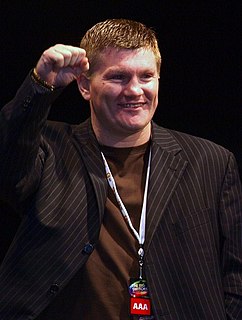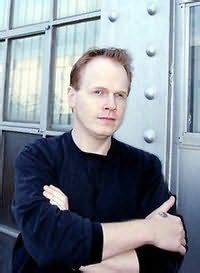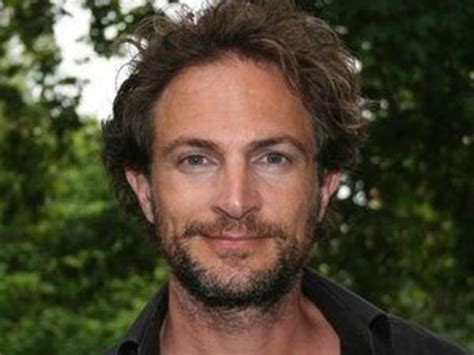A Quote by Paolo Bacigalupi
For me as a kid, reading cyberpunk was like seeing the world for the first time. Gibson's Neuromancer wasn't just stylistically stunning; it felt like the template for a future that we were actively building. I remember reading Sterling's Islands in the Net and suddenly understanding the disruptive potential of technology once it got out into the street. Cyberpunk felt urgent. It wasn't the future 15 minutes out - it was the future sideswiping you and leaving you in a full-body cast as it passed by.
Quote Topics
Related Quotes
There comes a time when the blankness of the future is just so extreme, it's like such a black wall of nothingness. Not of bad things like a cave full of monsters and so, you're afraid of entering it. It's just nothingness, the void, emptiness and it is just horrible. It's like contemplating a future-less future and so you just want to step out of it. The monstrosity of being alive overwhelms you.
For the Tintin books were my emotional universe. To read them felt quite simply like being loved: in advance and by an entire world of pure possibility, my future. But to write to the author was to reach out for the lover. Even today, the power of reading one remains visceral: each book acts as a form of transportation, not just to the emotional landscape of this first literary love affair but to very specific memories.
No one "discovers" the future. The future is not a discovery. The future is not a destiny. The future is a decision, an intervention. Do nothing and we drift fatalistically into a future not driven by technology alone, but by other people's need, greed, and creed. The future is not some dim and distant region out there in time. The future is a reality that is coming to pass with each passing day, with each passing decision.
J. G. Ballard is just an example of the writers I like. Philip K. Dick is obviously one of them. I'm a big fan of William Gibson as well. He started cyberpunk with 'Neuromancer.' I've come to know him a little bit over Twitter, of all places, and I was always a huge fan of his. It's very cool to know he even knows I exist.
Lots of companies don’t succeed over time. What do they fundamentally do wrong? They usually miss the future. I try to focus on that: What is the future really going to be? And how do we create it? And how do we power our organization to really focus on that and really drive it at a high rate? When I was working on Android, I felt guilty. It wasn’t what we were working on, it was a start-up, and I felt guilty. That was stupid! It was the future.
And if I really can see the future, then what does it mean? Is there any sense in our lives if everything is already out there, just waiting to happen? For if that were so, then life would be a horrible monster indeed, with no chance of escape from fate, from destiny. It would be like reading a book, but reading it backwards, from the final chapter down to chapter one, so that the end is already known to you.
And I hope seeing a therapist becomes 10 times easier in the future. For me, once I came out of treatment, I got into a therapist and continued my road to recovery and health and happiness. But not everyone can do that. It's challenging to see a therapist when you work full-time, when you can't get an appointment within a week, and then by the time you do get one, maybe you feel like your "problem" has lessened and you don't bother to go in. It's about access.
I actually hated hunting the first time I went when I was a kid. My dad took us deer hunting. We sat there for 30 minutes, and I felt like I was losing my mind. But in college, I fell in love with it. Football became a full-time job, and I needed an escape. I needed something that would mellow me out.






































